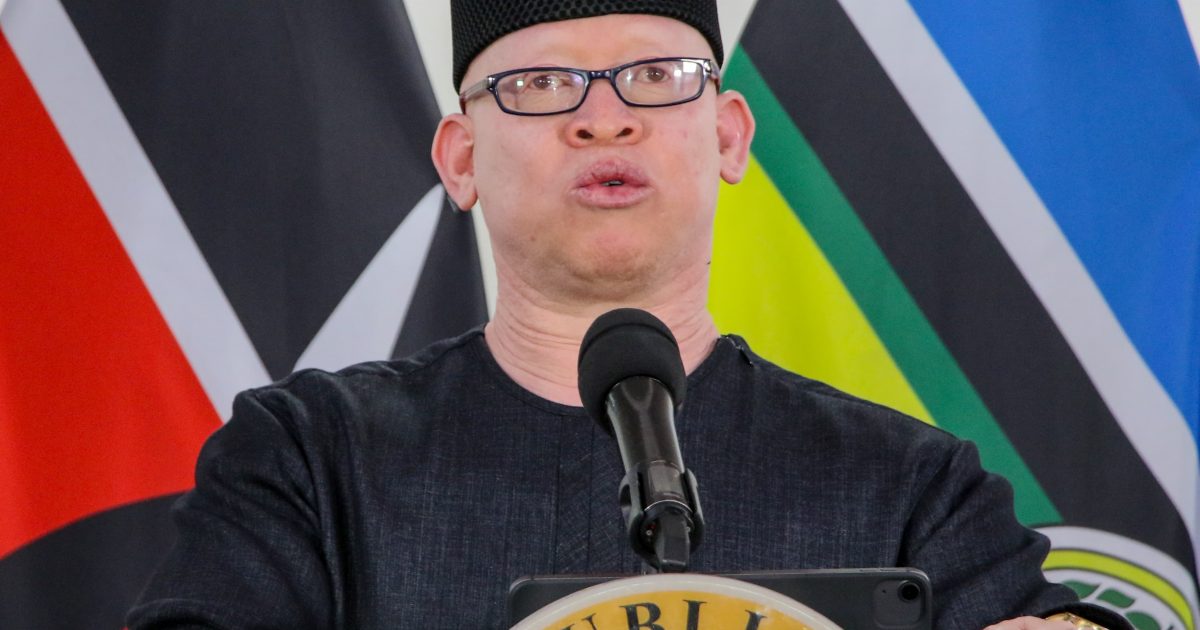The government has allocated billions of shillings to improve the education sector and develop a new funding model, with the aim of improving standards in the higher education sector
“In its commitment, the government has allocated Sh36.31billion to the Higher Education Loans Board (HELB), Sh17.9 billion for the recruitment of Junior Secondary School teachers into permanent and pensionable terms and Sh3 billion for the school feeding program,” Government Spokesperson Dr. Isaac Mwaura said.
Mwaura also informed prospective students that they can apply for the scholarships and loans without having an identity card to ensure that no student is disadvantaged or experiences delays in pursuit of higher education due to administrative processes.
Speaking in Nairobi during a press briefing, Mwaura said that in June last year, the government had introduced a new funding model on the education reforms, adding that the model advocates for the creation of an education model which enhances equity in education and training in the tertiary and college levels.
“The applicants aged below 18 years can apply for loans and scholarship using their KCSE index numbers and attach copy of their birth certificates in place of ID cards, while those aged 18 years and above, yet to receive ID cards, are advised to attach their waiting cards as evidence of the pending ID applications,” he maintained.
He added that the new funding model in education reform will provide adequate skills and competences in strategic disciplines to stir industrial and economic development aligned with the aspirations of Kenyans.
“The fund was envisioned to address the substantial shortcomings in funding caused by the previous Differentiated Unit Cost model (DUC), which was to cover 80 percent of the university education course for admitted students through loans and scholarship,” he said.
The government spokesperson explained that the commitment to cover 80 percent ended up covering only 50 percent or 45 percent in the same cases resulting in a significant gap and compromised educational quality making the universities ending up with an inherited debt of Sh77 billion putting them on the crisis.
Mwaura maintained that the new funding model which commenced in September last year utilizes the means testing instrument to fairly assess students’ needs, categorizing them into five funding bands including students from household, who earn Sh5,000 monthly or less and who will receive 95 percent funding from the government as loans and 5 percent as parents’ contribution.
Additionally, households earning between Sh 5,000-Sh23,000 will receive 90 percent support from the government, 30 percent as a loan, 60 percent as scholarship and 10 percent as household contribution and tax-free students earning from between Sh23,000- Sh70,000 will receive 80 percent of their support with 50percent scholarship,30 percent as loan and 20 as a household contribution.
“Households earning between Sh70, 000-Sh 100,000 will receive 70 percent funding that is 40 percent scholarship and 30 percent as loans and 30 percent as household contribution and those earning over Sh120,000 will receive 60 percent funding that is 30 scholarships and 30 loans and 40 percent as household contribution since the costing is per the degree programme,” he clarified.
He said that the universities will inform students about the exact payable fees based on their household’s financial ability ascertained through the means testing instrument beginning on the 19th of this month.
Concerning the misconceptions and misinformation about the livestock Bill 2024, Mwaura said that the bill requirement applies only to farmers engaged in commercial ventures using natural serviced bulls alongside artificial insemination services.
“The government urges the youths to ignore the calls to violence, as they offer little benefit to them and emphasize the importance of peace and stability and avoid unchecked protests, which could lead to further economic hardships and hinder their chances of gaining grievances,” he said.
By Sharon Atieno





